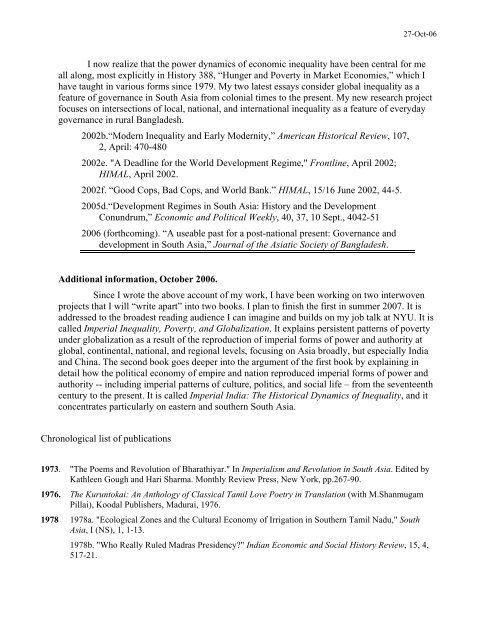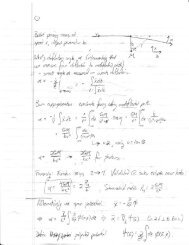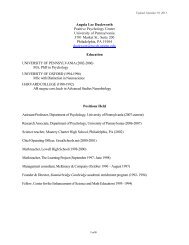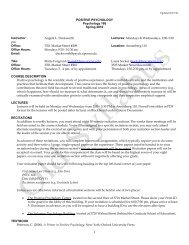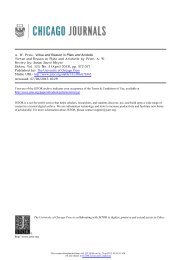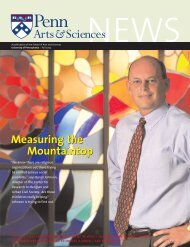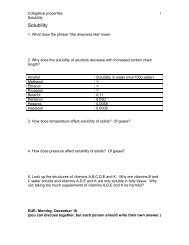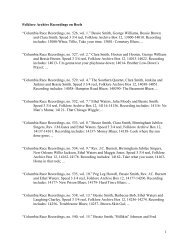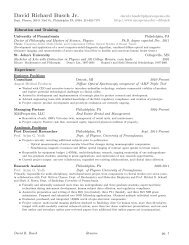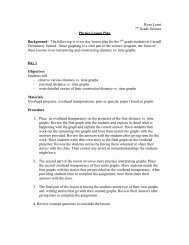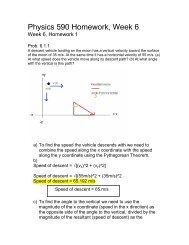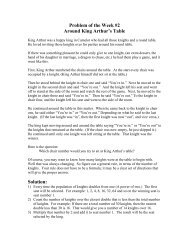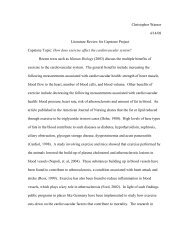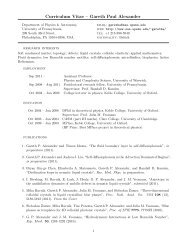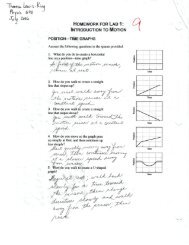David Ludden An account of my work - University of Pennsylvania
David Ludden An account of my work - University of Pennsylvania
David Ludden An account of my work - University of Pennsylvania
You also want an ePaper? Increase the reach of your titles
YUMPU automatically turns print PDFs into web optimized ePapers that Google loves.
27-Oct-06<br />
I now realize that the power dynamics <strong>of</strong> economic inequality have been central for me<br />
all along, most explicitly in History 388, “Hunger and Poverty in Market Economies,” which I<br />
have taught in various forms since 1979. My two latest essays consider global inequality as a<br />
feature <strong>of</strong> governance in South Asia from colonial times to the present. My new research project<br />
focuses on intersections <strong>of</strong> local, national, and international inequality as a feature <strong>of</strong> everyday<br />
governance in rural Bangladesh.<br />
2002b.“Modern Inequality and Early Modernity,” American Historical Review, 107,<br />
2, April: 470-480<br />
2002e. "A Deadline for the World Development Regime," Frontline, April 2002;<br />
HIMAL, April 2002.<br />
2002f. “Good Cops, Bad Cops, and World Bank.” HIMAL, 15/16 June 2002, 44-5.<br />
2005d.“Development Regimes in South Asia: History and the Development<br />
Conundrum,” Economic and Political Weekly, 40, 37, 10 Sept., 4042-51<br />
2006 (forthcoming). “A useable past for a post-national present: Governance and<br />
development in South Asia,” Journal <strong>of</strong> the Asiatic Society <strong>of</strong> Bangladesh.<br />
Additional information, October 2006.<br />
Since I wrote the above <strong>account</strong> <strong>of</strong> <strong>my</strong> <strong>work</strong>, I have been <strong>work</strong>ing on two interwoven<br />
projects that I will “write apart” into two books. I plan to finish the first in summer 2007. It is<br />
addressed to the broadest reading audience I can imagine and builds on <strong>my</strong> job talk at NYU. It is<br />
called Imperial Inequality, Poverty, and Globalization. It explains persistent patterns <strong>of</strong> poverty<br />
under globalization as a result <strong>of</strong> the reproduction <strong>of</strong> imperial forms <strong>of</strong> power and authority at<br />
global, continental, national, and regional levels, focusing on Asia broadly, but especially India<br />
and China. The second book goes deeper into the argument <strong>of</strong> the first book by explaining in<br />
detail how the political econo<strong>my</strong> <strong>of</strong> empire and nation reproduced imperial forms <strong>of</strong> power and<br />
authority -- including imperial patterns <strong>of</strong> culture, politics, and social life – from the seventeenth<br />
century to the present. It is called Imperial India: The Historical Dynamics <strong>of</strong> Inequality, and it<br />
concentrates particularly on eastern and southern South Asia.<br />
Chronological list <strong>of</strong> publications<br />
1973. "The Poems and Revolution <strong>of</strong> Bharathiyar." In Imperialism and Revolution in South Asia. Edited by<br />
Kathleen Gough and Hari Sharma. Monthly Review Press, New York, pp.267-90.<br />
1976. The Kuruntokai: <strong>An</strong> <strong>An</strong>thology <strong>of</strong> Classical Tamil Love Poetry in Translation (with M.Shanmugam<br />
Pillai), Koodal Publishers, Madurai, 1976.<br />
1978 1978a. "Ecological Zones and the Cultural Econo<strong>my</strong> <strong>of</strong> Irrigation in Southern Tamil Nadu," South<br />
Asia, I (NS), 1, 1-13.<br />
1978b. "Who Really Ruled Madras Presidency?" Indian Economic and Social History Review, 15, 4,<br />
517-21.


